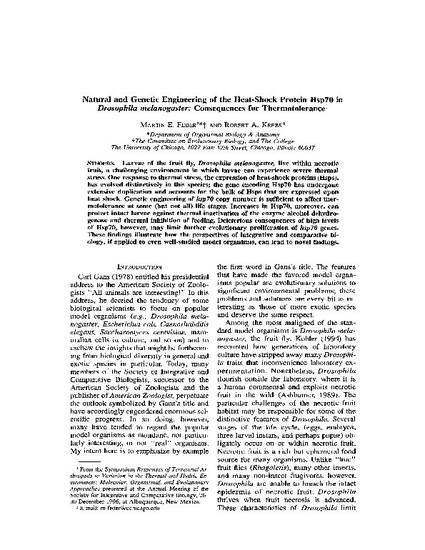
Larvae of the fruit fly, Drosophila melanogaster, live within necrotic fruit, a challenging environment in which larvae can experience severe thermal stress. One response to thermal stress, the expression of heat-shock proteins (Hsps), has evolved distinctively in this species; the gene encoding Hsp70 has undergone extensive duplication and accounts for the bulk of Hsps that are expressed upon heat shock. Genetic engineering of hsp70 copy number is sufficient to affect thermotolerance at some (but not all) life stages. Increases in Hsp70, moreover, can protect intact larvae against thermal inactivation of the enzyme alcohol dehydrogenase and thermal inhibition of feeding. Deleterious consequences of high levels of Hsp70, however, may limit further evolutionary proliferation of hsp70 genes. These findings illustrate how the perspectives of integrative and comparative biology, if applied to even well-studied model organisms, can lead to novel findings.

Research was supported by funding from NIH, Howard Hughes Medical Institute, the Louis Block Fund of the University of Chicago, and especially NSF (IBN94-08216 and BIR94-19545).